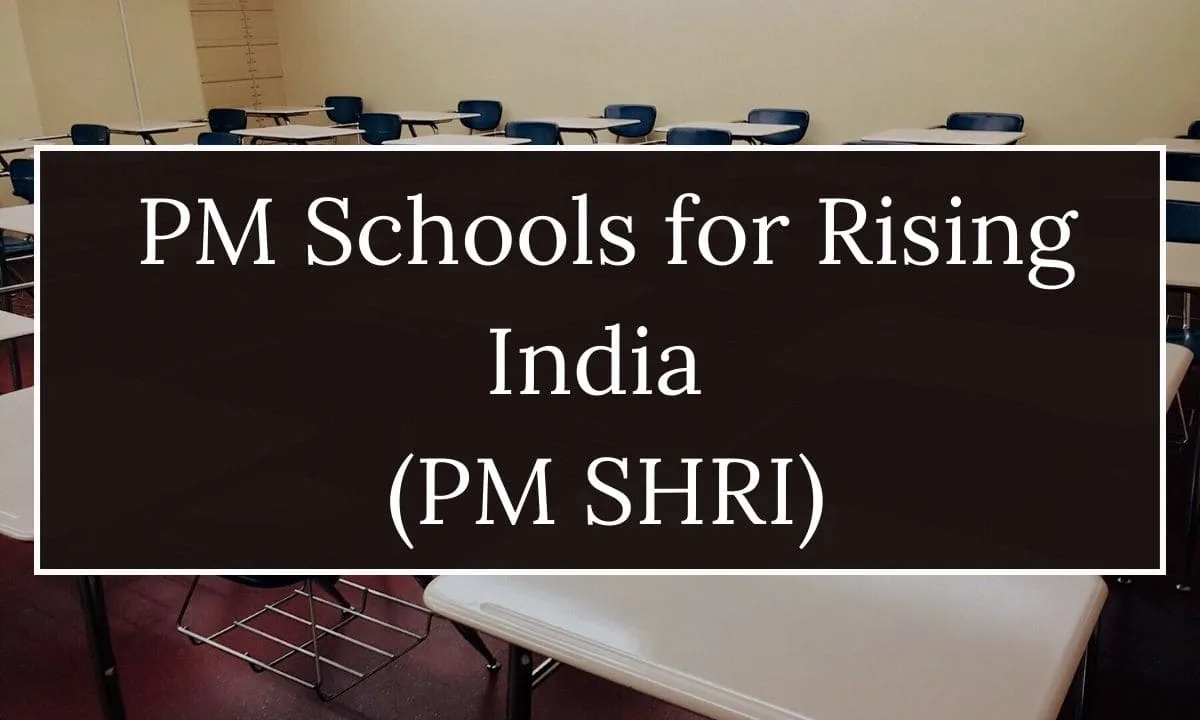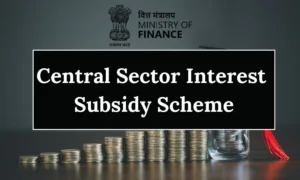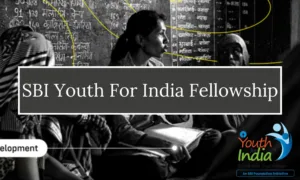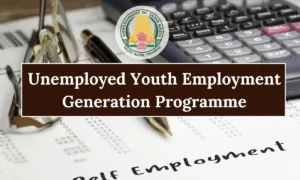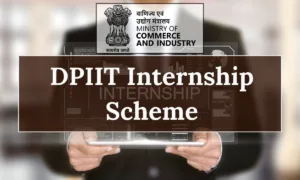On Teachers Day i.e. September 05, 2022, Prime Minister Narendra Singh Modi launched the Pradhan Mantri Schools for Rising India (PM-SHRI) Scheme, aiming to elevate 14,500 schools into exemplary institutions in alignment with the goals outlined in the National Education Policy of 2020. In this article, we are going to talk about the PM SHRI Scheme in detail. I am certain that by the end of the article, you will not be left with a doubt regarding the same.
What is the PM SHRI Scheme?
Pradhan Mantri Schools for Rising India (PM-SHRI) Scheme encompasses 14,500 schools nationwide with the goal of equipping students with 21st-century skills. The program aims to deliver top-notch education in a fair and inclusive setting, catering to the varied backgrounds, multilingual requirements, and diverse academic capabilities of children. These cutting-edge schools are poised to serve as testing grounds for the principles outlined in the new education policy. Notably, this centrally sponsored scheme involves a cost-sharing arrangement, with the Union government and states/Union Territories sharing the implementation costs in a 60:40 ratio.

The PM Schools for Rising India (PM-SHRI) initiative, with a total project cost of Rs. 27,360 crore, is set to be executed as a Centrally Sponsored Scheme. This budget encompasses a central allocation of Rs. 18,128 crore, spanning a five-year duration from 2022-23 to 2026-27.
VISION
PM-SHRI schools aim to be national benchmarks, fostering education that cultivates lifelong learners equipped with the ability and enthusiasm to continuously learn, unlearn, and relearn. This approach aims to develop engaged, productive, and contributing citizens, aligned with the vision of the National Education Policy 2020, for constructing an equitable, inclusive, and plural society.
| Pradhan Mantri Schools for Rising India (PM-SHRI) Scheme Key Highlights | |
| PM SHRI Scheme Launch Date | September 05, 2022 |
| PM SHRI Scheme Official Website | PM SHRI Official Website |
| PM SHRI Scheme Objective | To deliver top-notch education in a fair and inclusive setting, catering to the varied backgrounds, multilingual requirements, and diverse academic capabilities of children. |
| PM SHRI Scheme Duration | 5 Years |
| PM SHRI Scheme Budget 2022-23 to 2026-27 | Rs. 18,128 crore |
| PM SHRI Scheme No. of Beneficiaries | Rs 20 Lakh |
| PM SHRI Scheme Tenure | 2022-23 to 2026-27 |
| PM SHRI Scheme No. of Schools | 14,500 |
| PM SHRI Scheme Under which the Ministry | Ministry of Education |
| PM SHRI Scheme Department | Department of School Education and Literacy |
PM SHRI Scheme In News | What’s New?
63 Kendriya Vidyalayas and Navodaya Vidyalayas launched in Odisha
On November 19, 2023, Union Minister Dharmendra Pradhan launched 63 Kendriya Vidyalayas and Navodaya Vidyalayas in Odisha. He emphasized that PM-SHRI schools will serve as showcases for the effective implementation of the National Education Policy 2020 (NEP2020), becoming exemplary institutions that shape a brighter future for students. Here are some takeaways.
- A total of 37 Kendriya Vidyalayas and 26 Jawahar Navodaya Vidyalayas across Odisha will undergo upgrades under the centrally sponsored PM-SHRI scheme.
- During the launch of the PM-SHRI scheme, Dharmendra Pradhan visited the exhibition center, interacted with students, and underscored the importance of creating holistic individuals equipped with essential 21st-century skills.
- Earlier, Pradhan inaugurated the administrative-academic and hostel-guest house buildings of the Eastern Regional Language Centre, Central Institute of Indian Languages (CIIL) in Bhubaneswar.
- PM-SHRI schools will be developed as green schools, integrating environment-friendly features such as solar panels, LED lights, nutrition gardens with natural farming, waste management, plastic-free practices, and water conservation and harvesting.
- The initiative also includes the study of traditions and practices related to environmental protection, climate change-related hackathons, and awareness programs promoting sustainable living.

PM SHRI Scheme Key Features
- Anticipated to directly benefit over 20 lakh students, the project’s total cost amounts to Rs 27,360 crore, spanning a five-year duration from 2022-23 to 2026-27. This budget encompasses a central share of Rs 18,128 crore.
- PM-SHRI initiative focuses on providing high-quality education in an inclusive, equitable, and joyful school environment.
- The program caters to diverse backgrounds, multilingual needs, and varying academic abilities of children, aligning with the vision of NEP 2020.
- PM-SHRI Schools will serve as leaders, offering mentorship to other schools in their regions.
- These schools aim to be environmentally friendly (Green schools) with features like solar panels, LED lights, nutrition gardens, waste management, plastic-free practices, and water conservation.
- They will engage in the study of traditions/practices related to environmental protection, and climate change-related hackathons, and promote awareness for a sustainable lifestyle.
- The pedagogy in PM-SHRI Schools emphasizes experiential, holistic, integrated, play/toy-based (especially in foundational years), inquiry-driven, learner-centered, and enjoyable approaches.
- Focus on learning outcomes for every child in every grade, with assessments based on conceptual understanding and application of knowledge in real-life situations, using a competency-based model.
- A systematic evaluation of resources will be conducted, addressing gaps in availability, adequacy, appropriateness, and utilization for each domain and key performance indicators.
- Exploration of partnerships with Sector Skill Councils and local industries to enhance employability and provide better employment opportunities.
- Development of a School Quality Assessment Framework (SQAF) specifying key performance indicators for outcome measurement.
- Regular quality evaluations to ensure adherence to desired standards.
Benefits of the PM-SHRI Scheme for Schools and Students:
- Model Schools: Institutions developed under the PM-SHRI initiative will serve as model schools, embodying the principles and objectives outlined in the National Education Policy (NEP).
- Holistic Approach: The pedagogy adopted in PM-SHRI Schools will emphasize experiential, holistic, integrated, and toy-based learning. It will be discovery-oriented, learner-centered, discussion-based, and designed to be enjoyable.
- Mentorship: PM-SHRI Schools will play a mentoring role for other schools in their respective regions, fostering the widespread implementation of the NEP Policy.
- Technology Integration: PM-SHRI Schools will embrace environment-friendly tools and prioritize a technology-driven approach in their educational practices.
- Conceptual Understanding: Assessments for students will be rooted in conceptual understanding, emphasizing the application of knowledge to real-life situations. This competency-based evaluation will be applied across all grades.
- Anticipated to directly benefit over 20 lakh students, the project’s total cost amounts to Rs 27,360 crore, spanning a five-year duration from 2022-23 to 2026-27. This budget encompasses a central share of Rs 18,128 crore.
- Quality Assessment: The implementation of a School Quality Assessment Framework (SQAF) will systematically evaluate the available resources and their effectiveness, ensuring a continuous focus on quality.
- Employment Opportunities: Through collaborations with Sector Skill Councils and local industries, the PM-SHRI scheme will facilitate internships, providing students with enhanced employment opportunities and practical exposure.

Key Initiatives of the PM-SHRI Schools Program
Quality and Innovation:
- Implementation of Learning Enhancement Programme, Holistic Progress Card, and Innovative Pedagogies.
- Introduction of Bagless Days and Internships with Local Artisans.
- Capacity building initiatives.
Beneficiary-oriented Entitlements under the RTE Act:
- Assurance that 100% of PM-SHRI Schools will receive Science and Math Kits.
Annual School Grants:
- Allocation of Composite School grants, Library grants, and Sports grants.
Early Childhood Care and Education:
- Inclusion of Balvatika and Foundational Literacy and Numeracy.
Equity and Inclusion:
- Provision of safe and appropriate infrastructure for girls and Children with Special Needs (CWSN).
Flexibility in Subject Choices:
- Encouraging flexibility in the choice of subjects offered to students.
Language Medium and Technology Integration:
- Promotion of mother tongue/local languages as a medium of instruction, utilizing technological interventions to overcome language barriers.
- Introduction of ICT, smart classrooms, and digital libraries for digital pedagogy; ensuring 100% coverage for PM-SHRI Schools.
Infrastructure Strengthening:
- Strengthening of existing infrastructure in PM-SHRI Schools.
Vocational Interventions:
- Enhancing internship/entrepreneurship opportunities, particularly with local industries.
- Mapping of skills with developmental projects/nearby industry to develop courses and curriculum accordingly.
Saturation Approach for Modern Facilities:
- Adoption of a saturation approach to equip all schools with modern facilities.
- Provision of Science labs, Libraries, ICT facilities, and Vocational labs to all PM-SHRI Schools.
PM SHRI Beneficiaries
The scheme is anticipated to directly benefit over 20 lakh students. Additionally, the positive impact is expected to extend further through the mentoring and support provided to schools in the vicinity of PM-SHRI schools.

PM-SHRI Schools Scheme Selection Process
The process of selecting PM-SHRI schools will employ a Challenge Mode, where schools actively compete for support to achieve exemplary status. Schools must submit self-applications through the online portal, which will be accessible quarterly for the first two years of the scheme.
Elementary schools and Secondary/Sr. Secondary Schools managed by Centre/State/UT Governments/local self-governments with a UDISE+ code will be considered for selection under the Scheme.
The selection process involves three stages with defined timelines:
- States/UTs will sign an MoU committing to the full implementation of the NEP, outlining the support commitments for these schools to achieve specified quality assurance as PM-SHRI schools.
- Identifying a pool of eligible schools based on prescribed minimum benchmarks using UDISE+ data.
- Utilizing the challenge method, schools from the eligible pool will compete to fulfill specific criteria, with States/KVS/JNV certifying the fulfillment through physical inspection. States/UTs/KVS/JNV will verify reported claims by schools and recommend the list of schools to the Ministry.
- A maximum of two schools (one Elementary and one Secondary/Senior Secondary) will be selected per block/ULB, with an upper limit on the total number of schools across India.
- Geo-tagging of schools for selection and monitoring of PM-SHRI schools will be conducted, with Bhaskaracharya National Institute for Space Applications and Geo-informatics (BISAG-N) providing services for geo-tagging and related tasks.
- An Expert committee will be formed for the final selection of schools.
